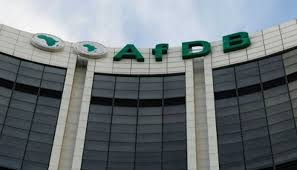The African Development Bank (AfDB) has completed eight Special Agro-Industrial Processing Zones (SAPZs) across Nigeria under the first phase of its agricultural transformation initiative, with 28 more zones currently being developed nationwide.
Prof. Banji Oyelaran-Oyeyinka, the Senior Special Adviser to AfDB President, Dr. Akinwumi Adesina, made this known during the groundbreaking ceremony for the new SAPZ hub at Ijaiye, Akinyele Local Government Area of Oyo State on Saturday.
He said the initiative, which began as a vision under Dr. Adesina’s tenure as Minister of Agriculture in 2010, has now grown into a continent-wide programme. “In Nigeria, we have completed eight sites under SAPZ Phase One, with 28 more sites in the pipeline across the country. The journey continues,” he stated.
Oyelaran-Oyeyinka explained that the SAPZ programme now covers 27 sites across 11 African countries. In Nigeria, Phase I spans seven states and the Federal Capital Territory (FCT)—Kaduna, Cross River, Oyo, Ogun, Kwara, Kano, Imo, and FCT. The goal, he said, is to extend the programme to 23 additional states by 2027, with 10 of them expected to be approved by the AfDB board by October 2025.
Funded by the AfDB, Islamic Development Bank, International Fund for Agricultural Development, and Nigeria’s federal and state governments, Phase I of the project has received total financing of $538 million.
Speaking about the vision behind SAPZ, Oyelaran-Oyeyinka said the programme aims to eliminate poverty, create full employment, and drive rapid industrialisation by transforming rural areas into economic hubs. “We want to create a Nigeria with life abundant for all,” he said.
The newly launched 300-hectare SAPZ site in Ijaiye, Oyo State, will focus on key commodities such as cassava, maize, poultry, soybeans, and horticulture. The state is also developing a larger 2,800-hectare agribusiness hub in Eruwa, which will include an Agricultural Transformation Centre. These two projects are supported by a $37 million funding package from AfDB.
Oyelaran-Oyeyinka praised Oyo State’s agricultural potential, describing it as a strategic location due to its fertile land, proximity to Lagos, and its access to key infrastructure like the Obafemi Awolowo Railway Station and the Ibadan international cargo airport.
“With over 90% of Oyo’s 28,454 square kilometers being arable and a population close to 8 million, the state is well-positioned to drive agricultural development,” he said.
To further strengthen the SAPZ programme, he urged the Federal Government to grant all SAPZs the status of “Presidential Priority Projects” and to designate them as export-free zones. He said these actions would help attract private investment and encourage export-led growth.
He also addressed the challenges of failed Special Economic Zones (SEZs) in Nigeria, saying weak ownership structures have led to poor outcomes. “None that belong to the government work. That’s why our mantra is: Government-catalyzed, Private Sector Driven,” he said.
The AfDB adviser stressed that SAPZs represent a “peri-urban locational strategy” aimed at lifting rural populations out of poverty and triggering structural economic transformation.
Tying the SAPZ programme to Nigeria’s long-term economic vision, he referred to a recent Federal Executive Council meeting where President Bola Tinubu reiterated the ambition to grow Nigeria into a $1 trillion economy by 2030.
“At the current GDP growth rate of 3.13%, Nigeria will reach that mark in 23 years. But if we want to achieve the $1 trillion goal in 10 years, we must grow GDP per capita by 14.7% annually. SAPZs offer one of the practical pathways to meet that target,” he said.
Oyelaran-Oyeyinka referenced global models, noting that China has nearly 3,000 industrial parks, Vietnam has over 700, and South Korea over 900. He said Nigeria must follow similar models to fast-track its industrial transformation.
The Oyo SAPZ launch was attended by AfDB President, Dr. Akinwumi Adesina, Oyo State Governor, Seyi Makinde, and representatives from development institutions, government agencies, and the private sector.
In a statement, the AfDB said the Oyo groundbreaking marks the Southwest’s entry into the SAPZ programme and reflects the Bank’s commitment to achieving balanced development across all regions in Nigeria.
The SAPZ programme is part of AfDB’s broader Feed Africa strategy, which aims to improve market access, stimulate investment, and drive inclusive agro-industrial growth on the continent.
